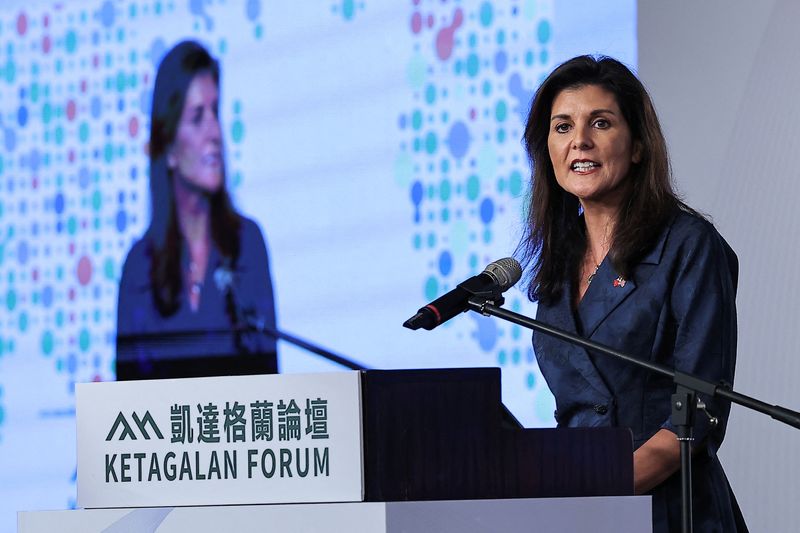TAIPEI (Reuters) - Nikki Haley, a former rival to Donald Trump for the U.S. Republican presidential nomination, said on Saturday that isolationism was not healthy and that the party should stand with the country's allies, especially in the face of China.
Speaking to reporters during a visit to Taiwan, Haley - Trump's ambassador to the United Nations who then ran against him - said it was important to support Taiwan, Ukraine and Israel.
"I don't think the isolationist approach is healthy. I think America can never sit in a bubble and think we won't be affected," she said.
Trump's bid to return to the White House has sparked isolationist worries among U.S. allies.
During her campaign, Haley called Trump unelectable and unfit for office, but last month she urged her supporters to vote for the former president. He faces the Democratic Party's candidate, Vice President Kamala Harris, in the Nov. 5 election.
Trump unnerved Taiwan, a democratically governed island claimed by China, in July, saying "Taiwan should pay us for defence" and that it had taken American semiconductor business. His remarks pummelled shares of top Taiwanese chipmaker TSMC.
Taiwan's government rejects China's sovereignty claims.
The United States is Taiwan's most important international backer and arms supplier. Despite lacking of formal diplomatic ties, Washington is bound by law to provide the means for the island's defence.
"What I want to see the Republican Party talk about is freedom, standing with our allies and making sure that we show strength around the world," Haley said in the capital Taipei. "We don't want see Communist China win, we don't want to see Russia win, we don't want to see Iran or North Korea win."
After meeting Taiwan President Lai Ching-te and other senior leaders, Haley said supporting Taiwan was an issue both Republicans and Democrats agree on. She said Taiwan's government did not ask her to pass on anything to Trump or his team.

Asked whether she would brief the Trump campaign about her Taiwan visit, Haley said she would "not necessarily meet with his team directly", but would do television interviews, probably write an opinion piece and send messages to Congress and the Biden-Harris administration.
Taiwan received strong support during the Trump administration, including visits by cabinet members and arms sales.